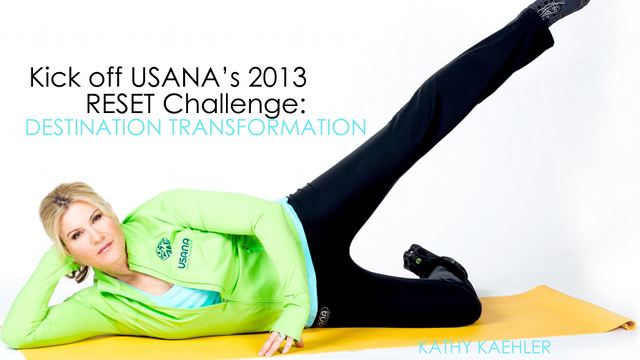How to Create Healthy Habits and Actually Keep Them
 A family curse. That’s what I’ve decided it has to be. Why else have I always struggled to be on time to functions my entire life? Since I was young, it seemed my family were always the last ones to arrive anywhere. In fact, it’s a running joke that if there’s a family dinner, the Jaggi clan should all be told 7 p.m. sharp so that they’ll arrive right on time with everyone else at 7:30. To this day I have a problem being punctual; I find myself running perpetually three to five minutes late.
A family curse. That’s what I’ve decided it has to be. Why else have I always struggled to be on time to functions my entire life? Since I was young, it seemed my family were always the last ones to arrive anywhere. In fact, it’s a running joke that if there’s a family dinner, the Jaggi clan should all be told 7 p.m. sharp so that they’ll arrive right on time with everyone else at 7:30. To this day I have a problem being punctual; I find myself running perpetually three to five minutes late.
Yes, I’m definitely cursed—cursed with a bad habit.
So how do you break old routines and create healthy habits?
It Takes Time
 If you do the research, you’ll find that, unfortunately, change doesn’t happen overnight. There are several different studies on the time it actually takes for new habits to become automatic—many show that it takes at least 21 days to start a new habit, several say 66 days, and some studies even claim that it can take as many as 254 days.
If you do the research, you’ll find that, unfortunately, change doesn’t happen overnight. There are several different studies on the time it actually takes for new habits to become automatic—many show that it takes at least 21 days to start a new habit, several say 66 days, and some studies even claim that it can take as many as 254 days.
The one thing these studies all have in common is that it takes time.
So that lofty goal to run four miles every morning, hit up the gym five times a week, and have a beach body in a month when you’ve spent years living a sedentary lifestyle might not be so practical.
Fortunately, there are a few simple tips to help you set and actually keep your new goals.
Keep Your Goals Small
Oftentimes we take on more than we can handle when it comes to setting new goals. We want to complete a full marathon, because bigger goals sound good, right? And we do really great at hitting up the gym everyday that first week, or meditating for a half hour before bed for the first couple of days. But schedules can be unpredictable and hectic—one missed day at the gym can lead to two, which suddenly feels like failure. Our motivation starts to slide, and all too soon we find our goals on a slippery slope, falling back into old patterns.
 This is why it’s important to start off small.
This is why it’s important to start off small.
By starting off small, you are less likely to feel overwhelmed because you are not expecting high-level performance from yourself. Rather, you are trying to become the type of person who can stick to this easy, new habit. Once the behavior becomes consistent, then you can build up the performance level.
Maybe you do have a goal to get in shape. Great! But instead of attempting to go from couch to kickin’ it right off the bat, start off simple. Shoot for running only a quarter mile a day (instead of four) the first week. As time progresses, slowly bump up the distance. Or if your goal is to read a book for an hour every evening, begin by reading only five minutes for the first week. Five minutes is totally doable and you’ll find it much easier to commit.
From there you can continue to increase your exercise time or increase your reading time (or whatever your goal may be) little by little as you adjust to your new habit.
This can be true of all new goals. Want to get out of debt? Start by saving an extra $15 a week. Ready to quit drinking those five cans of Dr. Pepper every day? Replace one can of soda with a bottle of water each day. Trying to stop snacking on junk food throughout the day? Carry along a baggie of carrots and raisins to munch on for your typical afternoon snack.
As your new, smaller habits begin to form, you’ll find them becoming a permanent part of your routine and a permanent part of your life.
Combine Your Habits
 Another helpful way to make new habits stick is to combine your new habit with an old one.
Another helpful way to make new habits stick is to combine your new habit with an old one.
To start, make a list of common things you do every day:
- Get out of bed
- Put on your shoes
- Check Facebook
- Grab a cup of coffee
- Sit down for breakfast
- Drive to work
- Check emails
- Attend meetings
- Make dinner
- Watch Netflix
- Etc.
From here, choose something you do regularly, and pair it with the new habit you’d like to form.
For example:
“When I sit down to eat breakfast in the morning, I’ll take my vitamins,” or “Whenever I have a meeting on the fourth floor in the office, I’ll take the stairs.”
Use Visual Cues or Reminders
 Visual cues or reminders can also be helpful. Try leaving an empty glass on your nightstand to remind you to drink a glass of water when you wake up, or leave a piggy bank next to your computer as a reminder to not only save that extra $15, but to track your online budget.
Visual cues or reminders can also be helpful. Try leaving an empty glass on your nightstand to remind you to drink a glass of water when you wake up, or leave a piggy bank next to your computer as a reminder to not only save that extra $15, but to track your online budget.
For exercise goals, try laying out your gym clothes the night before or leaving your running shoes next to your bed if your goal is to work out first thing in the morning. You can also keep a calendar on your fridge or in your gym locker and mark a giant black ‘X’ across each day you exercise. A calendar can be highly motivating (and rewarding) as you watch how far you’ve come.
Creating a new habit doesn’t have to be a challenging marathon. Try combining some of these methods to see what works best for you.
We’ll see you at the finish line. (If I’m not late, that is).
We’re proud to bring you the freshest content on the web! Follow USANA on Twitter, like our USANA Facebook page and enjoy the latest videos on the official USANA YouTube channel.
 Learn what USANA is doing to make the world a better place.
Learn what USANA is doing to make the world a better place.
The future of personalized health and nutrition is now available with USANA’s True Health Assessment.






These are all great tips! Around about this time so many tend to fall off the wagon with resolutions and good intentions. This is a reminder of what it takes to make a hope a habit!